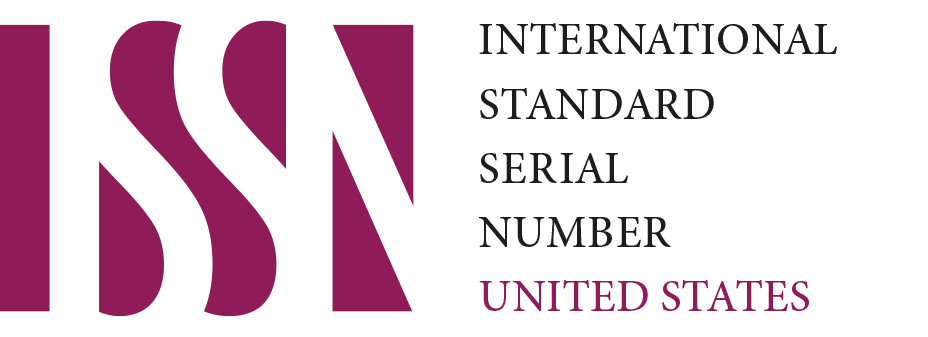Strategi Pembelajaran Kontekstual dalam Meningkatkan Pemahaman Konsep Siswa pada Mata Pelajaran IPS
DOI:
https://doi.org/10.61404/jimad.v3i1.411Keywords:
Contextual Learning, CTL, Critical ThinkingAbstract
Social Studies is often perceived by students as a less engaging subject, partly due to the dominance of lecture-based teaching methods that offer minimal contextual learning experiences. The low level of active student participation in the learning process impacts their conceptual understanding and critical thinking skills. This study aims to evaluate the effectiveness of the Contextual Teaching and Learning (CTL) strategy in improving students’ conceptual understanding in Social Studies through a literature review of various recent research findings and scholarly publications. CTL, as a learning approach that emphasizes the connection between subject matter and students’ real-life contexts, is believed to address these pedagogical challenges. Analysis of the literature sources shows that the consistent implementation of CTL positively contributes to enhancing student engagement, learning outcomes, and the development of critical and analytical thinking skills. Learning that is linked to concrete social experiences encourages students to actively construct meaning, understand interconceptual relationships, and apply knowledge meaningfully in daily life. The conclusion of this review affirms that the CTL strategy is effective in creating a more interactive, meaningful, and deeply comprehensible Social Studies learning process. The novelty of this research lies in its comprehensive synthesis of previous findings, demonstrating that CTL is not only relevant as an innovative teaching method but also holds potential as a systematic approach to pedagogical transformation in Social Studies education at the elementary and secondary levels.
Downloads
References
Adlini, Miza Nina, Anisya Hanifa Dinda, Sarah Yulinda, Octavia Chotimah, dan Sauda Julia Merliyana. “Metode Penelitian Kualitatif Studi Pustaka.” Edumaspul: Jurnal Pendidikan 6, no. 1 (2022): 974–980. https://ummaspul.e-journal.id/maspuljr/article/view/3394.
Filindity, Yuli, dan Victor Kayadoe. “Inovasi Guru dalam Pembelajaran Sains untuk Meningkatkan Kompetensi dan Kreativitas Siswa.” Science Map Journal 2, no. 1 (2020): 20–23. https://ojs3.unpatti.ac.id/index.php/sciencemap/article/view/2404/.
Hadi, Nanang Faisol, dan Nur Kholik Afandi. “Literature Review is A Part of Research.” Sulawesi Tenggara Educational Journal 1, no. 3 (2021): 64–71. https://jurnal-unsultra.ac.id/index.php/seduj/article/view/203.
Johnson, Elaine B. Contextual Teaching and Learning: What It Is and Why It’s Here to Stay. Thousand Oaks: Corwin Press, 2002.
Khairizka, Wirda Indri, Rora Rizki Wandini, dan Vira Dwi Nanda. “Analisis Kemampuan Literasi Matematis Siswa Ditinjau dari Karakter Belajar Aljabar di Sekolah Dasar.” Innovative: Journal of Social Science Research 3, no. 2 (2023): 10227–10233. https://j-innovative.org/index.php/Innovative/article/view/1484?articlesBySimilarityPage=11.
Khoirunisa, Tutik. “Pengembangan Model Pembelajaran Pendidikan Agama Islam Berbasis E-Modul Flipbook.” Universitas Islam Negeri Syarif Hidayatullah, 2023. chrome-extension://efaidnbmnnnibpcajpcglclefindmkaj/https://repository.uinjkt.ac.id/dspace/bitstream/123456789/73033/1/21210110000005 TUTIK KHOIRUNISA_compressed %281%29.pdf.
Kusna, Ratna Mufidatul, Mohammad Auza’i Aqib, dan Dian A. Maharbid. “Upaya Meningkatkan Hasil Belajar Matematika dengan Pendekatan Kontekstual pada Siswa Sekolah Dasar.” EduKarya: Educational Journal of Bhayangkara 3, no. 1 (2023): 93–102. https://ejurnal.ubharajaya.ac.id/index.php/EDUKARYA/article/view/1997/.
Mestika Zed. Metode Penelitian Kepustakaan. Jakarta: Yayasan Obor Indonesia, 2008.
Muntuan, Jade. “Model Pembelajaran Every One is a Teacher Here dan Pendekatan Quantum Teaching untuk Meningkatkan Kemampuan Pemecahan Masalah Matematis Siswa SMP.” Jurnal Padegogik 2, no. 1 (2019): 28–50. https://jurnal.unai.edu/index.php/jpd/article/view/1073.
Nasarudin, Susi Susanti, Akmal, Nur Khadijah Razak, Annisa, Herman, Lastri Wahyuni Manurung, et al. Pragmatik: Konsep Teori dan Praktek. Padang: CV. Gita Lentera, 2023.
Nurhikmah, Juliana, Mufidatul Husna, Sarah Nabilah, Uni Nurhikmah, dan Nurdiansyah. “Implementasi Pendekatan Pembelajaran Kontekstual dalam Pengajaran IPS di Sekolah Dasar.” Jurnal Pendidikan Tambusai 8, no. 2 (2024): 21654–21661. https://jptam.org/index.php/jptam/article/view/17500/.
Rahman, Abdul, Yayat Suharyat, Zulyusri, Upris Yastati, Tomi Apra Santosa, Revi Gina Gunwan, Suhaimi, dan Ilwandri. “Pengaruh Flipchart Terintegrasi STEM terhadap Kemampuan Berpikir Kritis dan Hasil Belajar Siswa di Indonesia: Sebuah Meta-Analisis.” Jurnal Sustainable 6, no. 1 (2023): 95–107. https://jurnal.lp2msasbabel.ac.id/sus/article/view/3391.
Rumahuru, Yance Z., Agusthina Siahaya, dan Jenri Ambarita. Transformasi Budaya Pembelajaran Era Kenormalan Baru Pasca Covid-19. Indramayu: Penerbit Adab, 2021.
Santiani, Effendi, Salam, Fathur Rahman Rustan, dan Erniati Bachtiar. “Transformasi Pembelajaran dalam Kurikulum Merdeka Belajar.” Penerbit Mifandi Mandiri Digital 1, no. 1 (2024): 1–60. https://jurnal.mifandimandiri.com/index.php/penerbitmmd/article/view/113/.
Setiadi, Iwan. Cara Jempolan Bikin Artikel Ilmiah Anti Gagal Memulai Penelitian, Menulis, dan Publikasi Artikel Ilmiah Bagi Guru. Cet. 1. Bantul: Jejak Pustaka, 2023.
Subiyantari, Ansheila Rusyda, dan Supari Muslim. “Pengaruh Model Pembelajaran Kooperatif Tipe JIGSAW terhadap Hasil Belajar Siswa SMK.” JVTO: Jurnal Vocasi Teknik Otomotif 1, no. 1 (2019): 1–7. chrome-extension://efaidnbmnnnibpcajpcglclefindmkaj/https://d1wqtxts1xzle7.cloudfront.net/85066771/JVTO_Vol.1_Nomor_01_Maret_2019-libre.pdf?1651080805=&response-content-disposition=inline%3B+filename%3DJVTO_Vol_1_Nomor_01_Maret.pdf&Expires=1754994917&Signature=UKWh4ygx1cmXl3rX~xqaxAQZsstL6TtW1S2rr-bB1FK~SAKyDy-7kdKyTc8S5VW7ZYgdk7hvYlfLguVtVceYja0m6lx7s1YOE5oyrR9DBWBd01Cr6I9u4VxsRRzBth4LiQ~z0b0LuiF6H2gYOVllcCohuAgTcbn67HTooMv-cw74zdvWZni8FvasMc3mAKj1I2JEaZMC9cUYanS-39mRtF-7eMtvNaVyomUCSD-l6m4vhgjwtCW9m1Yg-FTMXkOKe0nLwlhz2pjEfvEIowLXvM7Fj0JlHC7Zs8w6y3teGj-UI2mI~Ph5Bp7oOgDBazNZSXGMv1TCybF~cqoezRXGwg__&Key-Pair-Id=APKAJLOHF5GGSLRBV4ZA.
Yolanda, Aura, Masnur Sihotang, Joner Alfin Zebua, Mita Hutasoit, dan Yeni Lupitasari Sinaga. “Strategi Pembelajaran Kontekstual untuk Meningkatkan Pemahaman Konsep Siswa Sekolah Dasar.” Pragmatik: Jurnal Rumpun Ilmu Bahasa Dan Pendidikan 2, no. 3 (2024): 301–308. https://journal.aspirasi.or.id/index.php/Pragmatik/article/view/941/.
Zaimina, Ach. Barocky, dan Bahrul Munib. “Green Islam Education: Model Pembelajaran Ekopedagogi Berbasis Fikih Lingkungan di Sekolah Islam Urban.” MANAGIERE: Journal of Islamic Education Management 4, no. 1 (2025): 27–43. https://journal.jurnalpascauinkhas.com/index.php/MANAGIERE/article/view/2329/.
Downloads
Published
How to Cite
Issue
Section
License
Copyright (c) 2025 *Fuji Ochtaulia, Desy Safitri, Sujarwo

This work is licensed under a Creative Commons Attribution-ShareAlike 4.0 International License.














